Original Bramley apple tree in Southwell is dying
- Published
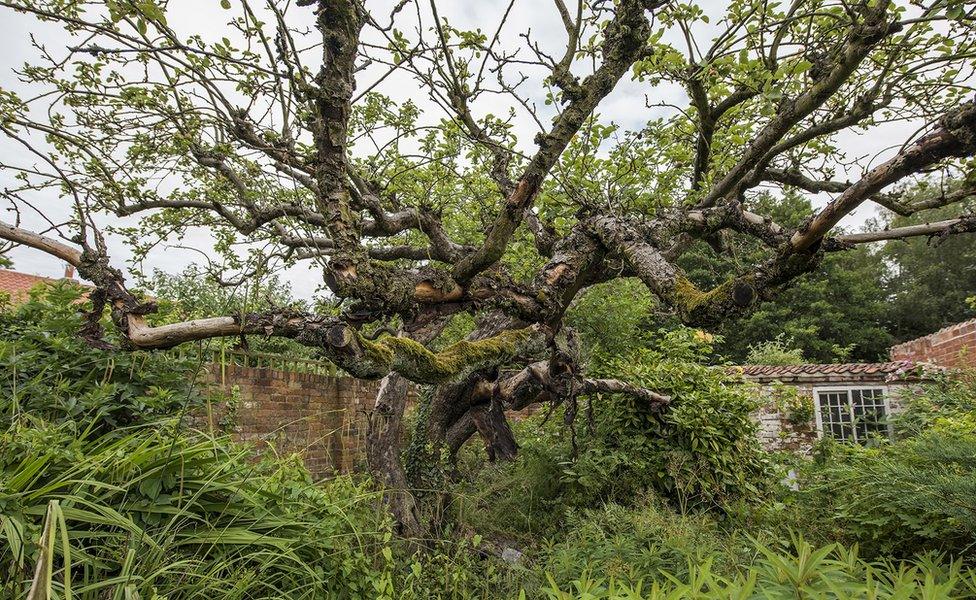
The original 200-year-old Bramley apple tree is in a cottage garden in the Nottinghamshire town of Southwell
The original Bramley apple tree - planted more than 200 years ago and the "mother" of all modern Bramley apples - is dying from a fungal infection.
The tree was sown by a girl called Mary Ann Brailsford in 1809 in the Nottinghamshire town of Southwell.
Landowner Coulson Howard, who took on the garden from his aunt Nancy Harrison, has been told the fungus is incurable.
He hopes to find a way to preserve the tree once it has died.
"It's all very sad. The tree has honey fungus and I have asked everybody if there is a treatment. All the advice seems to be that it is fatal," he said.
"In the long term once it has died, I would like to preserve the tree where it stands for as long as possible."
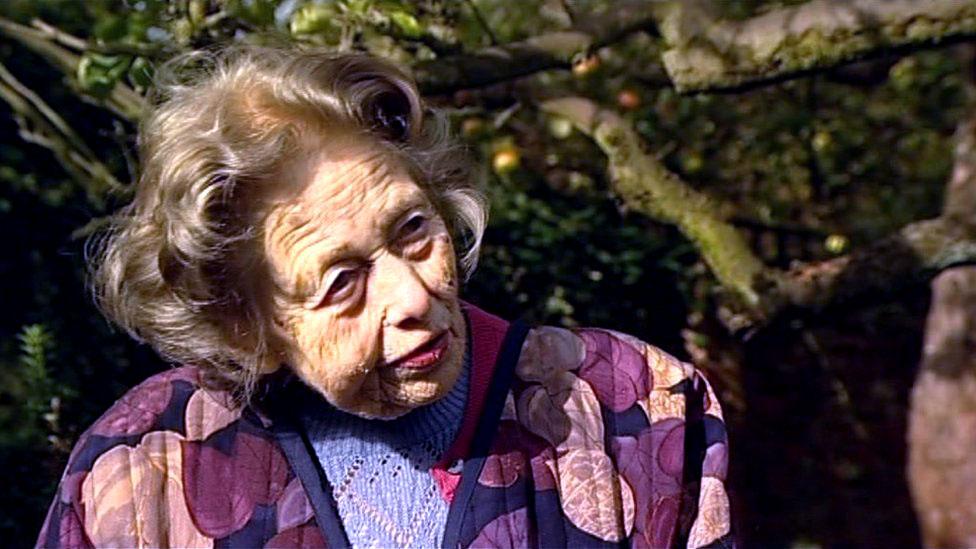
Nancy Harrison tended to the Bramley apple tree in her cottage garden in Southwell, Nottinghamshire
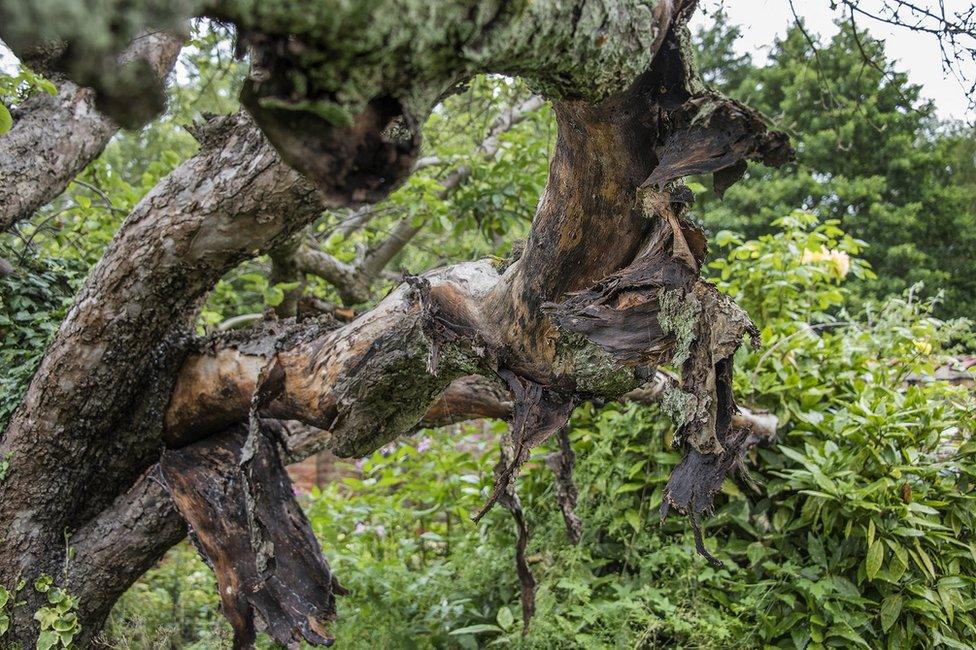
The fungal infection gets into the water transport system of the tree and slowly kills it off
Bio-scientist Prof Ted Cocking, from Nottingham University, has studied the tree for many years and used tissue cultures to micro-propagate the tree and create clones of the original Bramley.
"It looks as though it is going to die - although we can never be 100% certain with a tree.
"It is a great shame. Ms Harrison devoted most of her life looking after the tree and entertaining people who came from all over the world to visit the tree.
"Even if it is dying - we all want to die with dignity. It needs to be nursed in its terminal years."

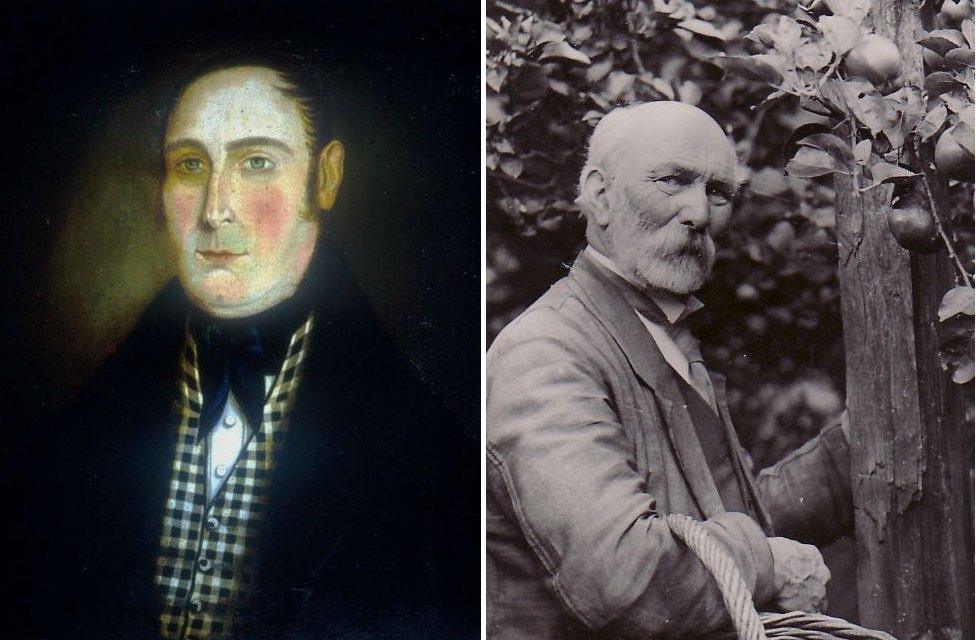
Matthew Bramley (left) gave Henry Merryweather permission to grow the apples provided they had the name Bramley's Seedling
From one tree to thousands
A girl called Mary Ann Brailsford grew the tree from a pip in about 1809.
Henry Merryweather was just 17 when he came across a gardener carrying some of the apples in 1856, and asked where they had been grown. By this time, the garden containing the apple tree belonged to a butcher called Matthew Bramley.
Mr Bramley agreed that Mr Merryweather could take cuttings from the tree and grow them in his family's nursery, providing they had the name Bramley's Seedling.
There are now more than 300 Bramley growers in England

Prof Cocking said the fungal infection gets into the water transport system of the tree and slowly kills it off - similar to a human's arteries getting clogged up.
Any extra stresses - such as a long hot summer - could hasten its death.
Clones taken by Prof Cocking and his team have now reached maturity and are sold commercially.
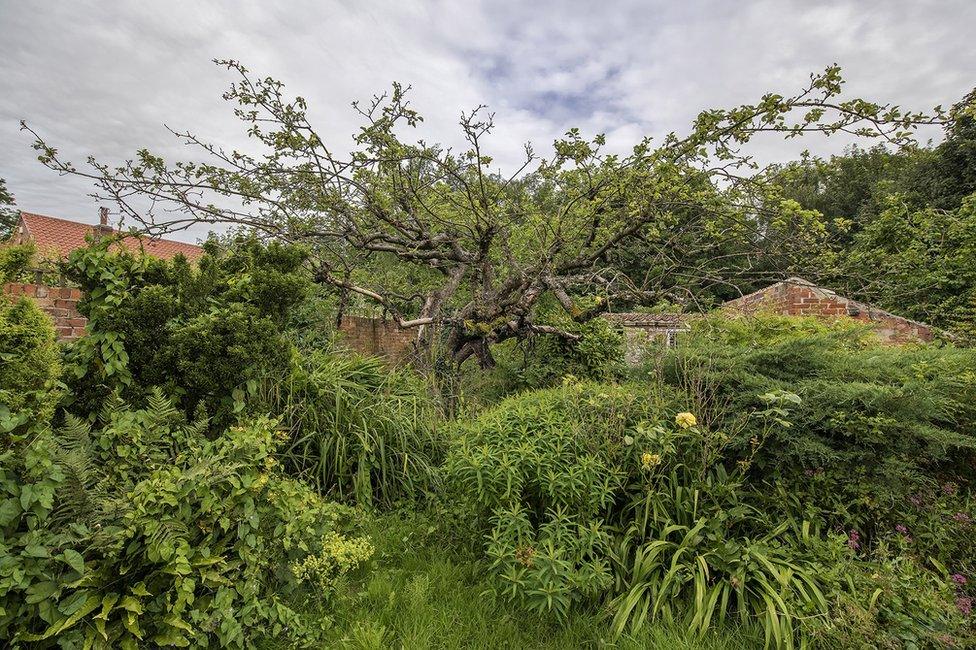
Experts have said nothing can be done to save the tree, which is infected with honey fungus
Every Bramley apple can be traced back to one 200-year-old tree
He said the fruit has a higher concentration of vitamin C and more flavour than that of the 200-year-old specimen and its descendants.
Sir John Starkey, who sells the fruit, said he asked Prof Cocking to clone the original tree as an experiment to "see how they behaved in commercial conditions."
"They looked more like tomato plants, little thin spindly things. I thought they are not going to survive in the wild but how wrong I was because in a few years they were outgrowing in dimensions and vigour the trees which I had from my nursery men," said.
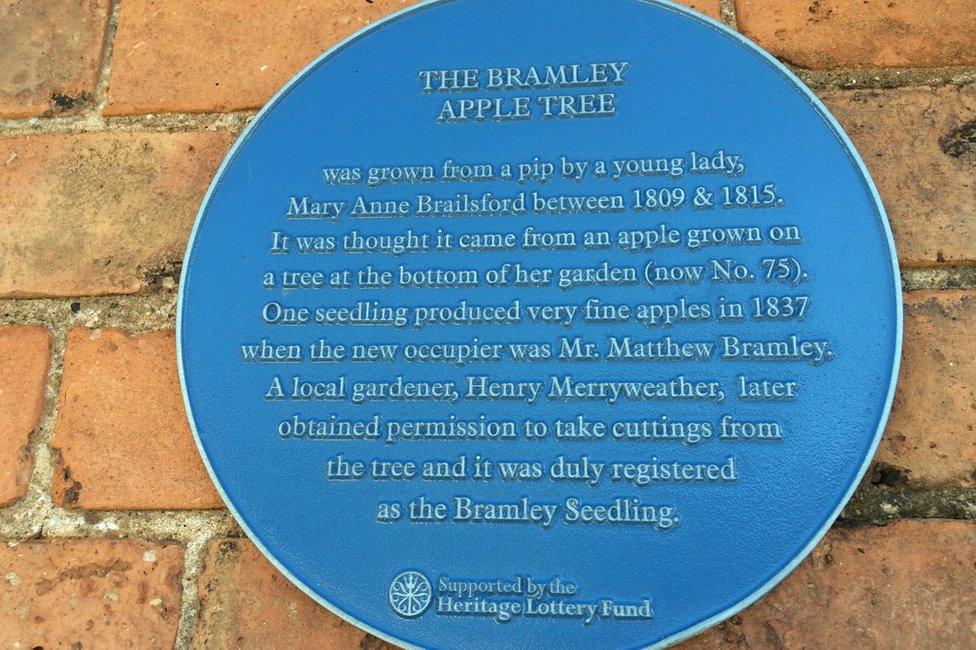
The plaque commemorating the planting of the original Bramley apple tree
The Bramley became popular because the apple stores well and keeps its flavour when cooked. About 83,000 tonnes of them are now grown in Britain annually.
According to the The Bramley Apple Information Service, it is not well known outside the UK except in Japan where it is revered.
One Japanese apple farmer said he "nearly cried" when he visited Southwell.
- Published24 October 2015
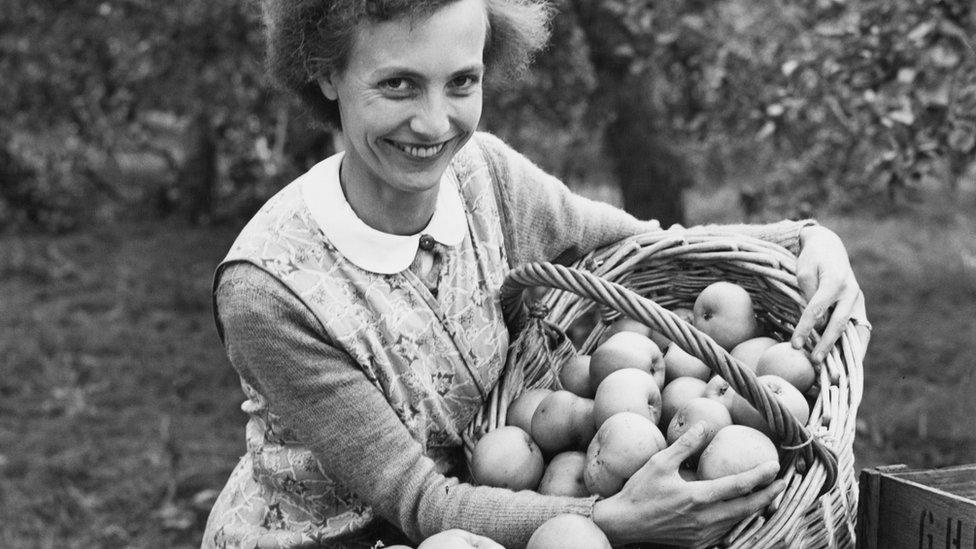
- Published30 July 2015
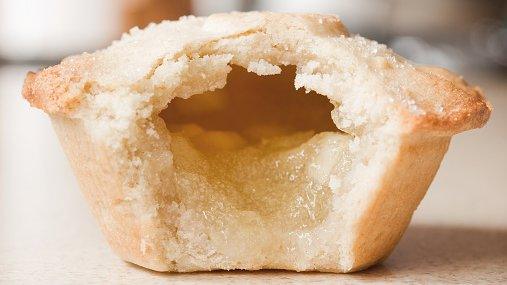
- Published23 August 2012
.jpg)
- Published21 October 2011
- Published16 June 2011
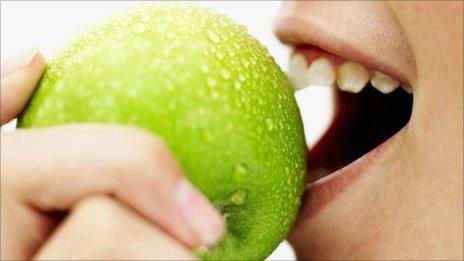
- Published15 June 2011